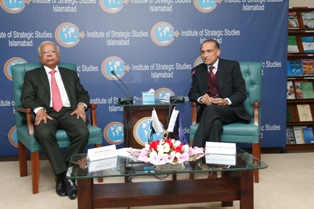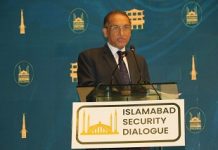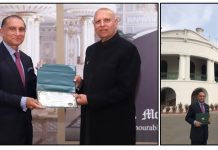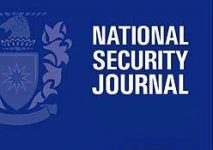Public Talk by Dr Ishrat Hussain
Pakistan’s Macro Economy: Current Situation and the Way Forward
26 December 2019
WELCOME REMARKS BY THE DIRECTOR GENERAL
A warm welcome to everyone. We are starting a series of public conversations on the economy of Pakistan, starting with a discussion today on macro economy with Dr Ishrat Hussain. Later, we hope to cover micro economy or trade, planning and development, and other dimensions of the economy of the country.
Dr Ishrat Hussain wears many hats. His illustrious career saw him as an eminent economist, a civil servant, WB executive, governor state bank, a renowned author, and presently government advisor. We are happy that he agreed to speak to us today.
Many of us in this hall, including myself, are not economists. We, therefore, struggle to understand what’s happening on the economic front in the country and where it is all headed. Today we hope to clarify some of the questions that agitate our minds.
Let me first state what most of us already understand:
- A sound economy is central to good governance and stability of a state. (Economically developed nations have a much larger say in world affairs. China is a case in point. China’s economic might provides it the foundation to project its influence and protect its interest. The reverse is also true. Soviet Union, despite its might and political weight, lost out on economic front).
- Our economy is suffering from multiple challenges (from stagnating economic growth to growing current account and fiscal deficits to high inflation).
- As a nation we are earning less and spending more. Hence, we end up with high fiscal deficits. We are also familiar with the other deficit, the current account deficit – buying from abroad more than selling abroad.
- Because of these two deficits, we have to borrow first to meet our expenses and also pay for whatever we import from abroad.
- We, therefore, quite well understand why the government had to sign up a program with IMF (worth USD 6 Billion), and also obtain soft loans from friendly countries to bridge these deficits.
That said, what we wish to understand better from you Dr Ishrat, how effectively is the government bridging these two deficits, how long would it take to achieve macro-economic stability, and in the process how would we bear the costs of adjustments. In this context, let me raise a few specific questions that many of us are grappling with:
- One, the austerity driven model and high interest rates are slowing down our economic growth. The IMF has already projected a decline in Pakistan’s annual growth rate to 2.4% in FY 2019-20. Will this shrinking of the size of the economy not lead to further unemployment and hence difficulties for the people and the government? An allied question is should the government not follow an expansionary fiscal policy so that we don’t end up in a recession?
- Two, the government is rightly concerned at the high levels of our debt. The debt to GDP ratio which will reach 86% over the next five years. The currency has already depreciated more than 20% in the last year. Where do you see our debt profile taking us in the coming years? And how would we avoid a debt trap?
- Three, we are into sixteenth program with IMF. How would this program be different from previous programs? We understand that the program calls for higher costs for utility services. The burden of this adjustment will fall on consumers. Coupled with that is the rising rate of inflation. This could become a huge burden for the masses. How will the government minimize the impact of the inflation and high utility costs, especially for low income group? How would the government control the prices, especially of food and fuel. And will this lead to hyper inflation?
- Four, The government is rightly working hard to increase exports. However, by increasing the cost of utilities as required by the IMF, are we not increasing the cost of manufacturing and hence making it difficult for our manufacturers and exporters to stay competitive?
- Five, The government is also reducing imports. In theory its good as we should not buy what we cannot pay for. However, by reducing imports drastically, is the government not losing its import duties and hence its revenues. Further will this not make it difficult for our manufacturers and exporters who need machinery and raw materials from abroad?
The present government has rightly accorded top priority to re-setting our economy. And in that context, broadening the tax base is probably the most effective remedy to our financial ailments. The government is right that everyone must pay taxes. It would be useful for us to hear from Dr Ishrat how in his view the tax base can be expanded in the face of opposition from retailers and many other segments of the society.
One recognizes that this is a heavy agenda. Stabilizing economy and pulling it out of such mammoth challenges is not easy. There is no short cut either. However, we do want to understand from Dr. Ishrat as to how in his view our economy as a whole and macro economy in particular can be stabilized in the shortest possible time.
Thank you once again for coming and speaking to us and we look forward to benefiting from your valuable views.
————-












